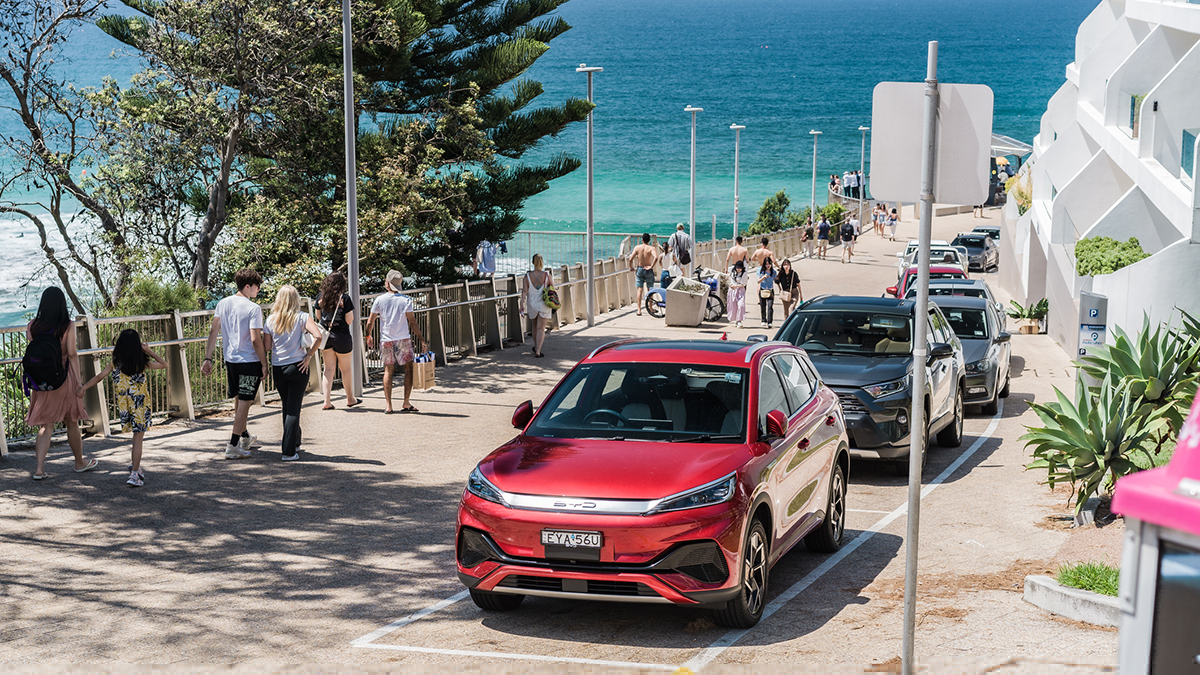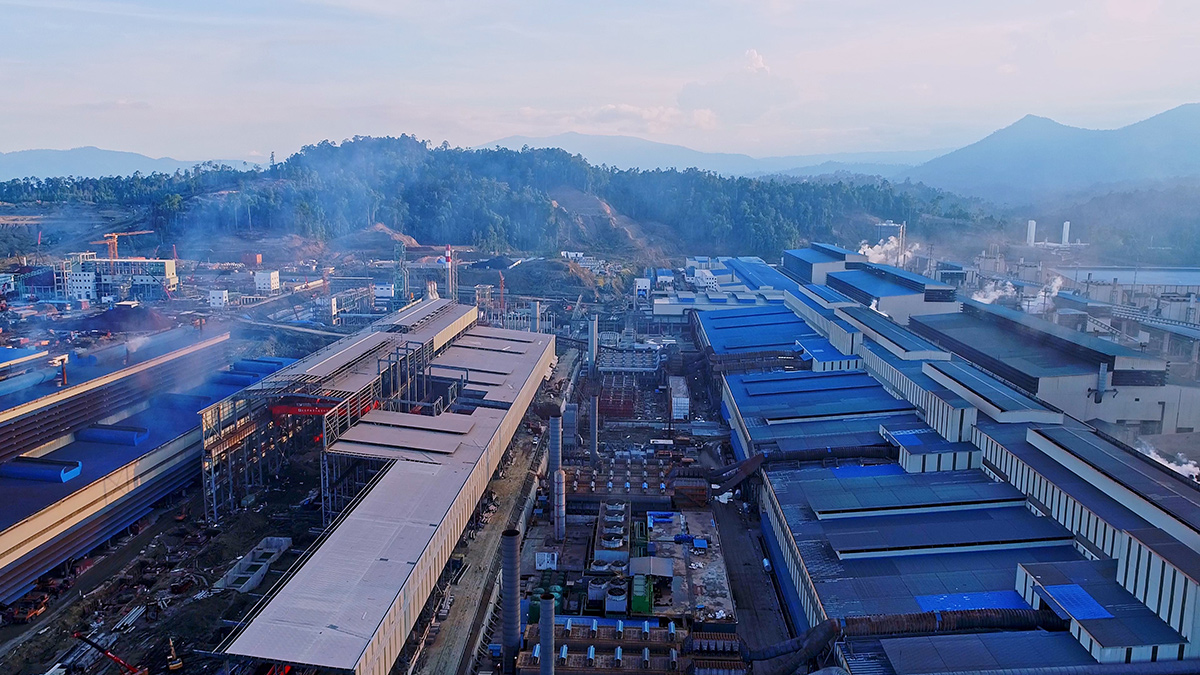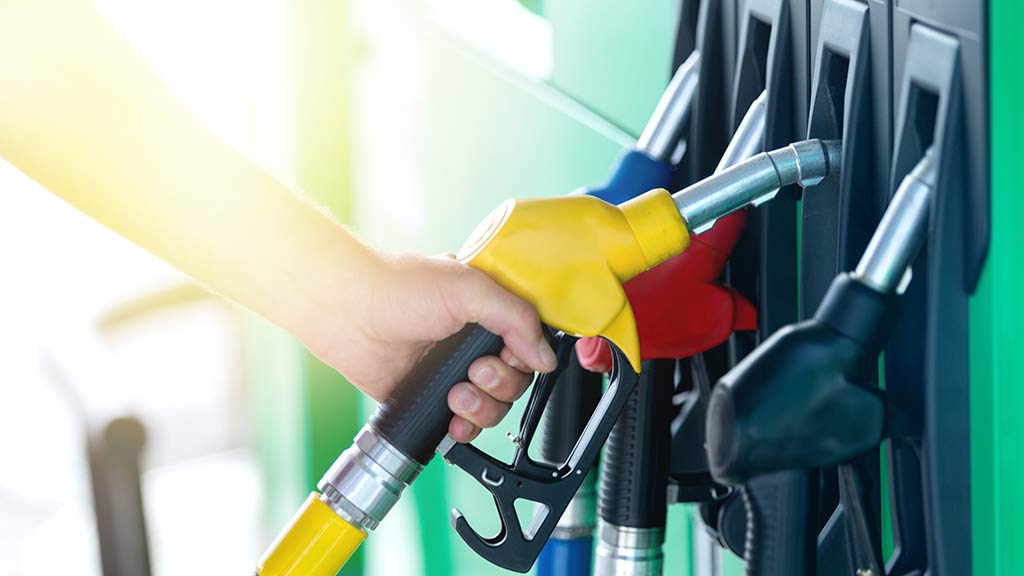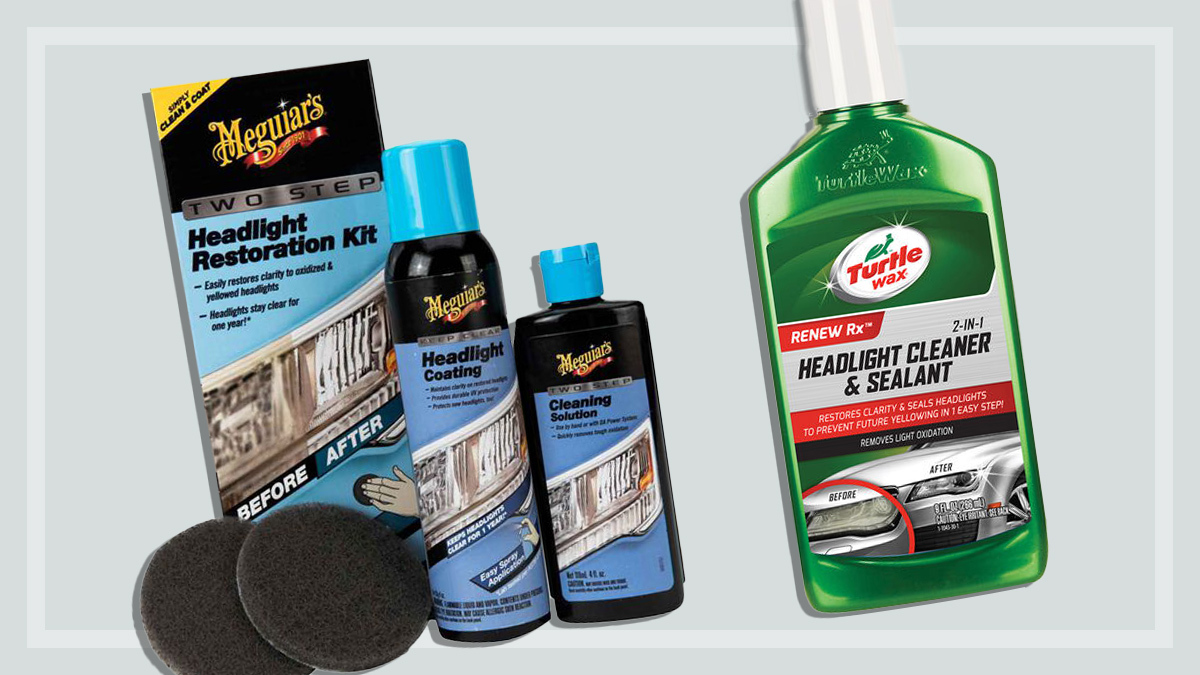Get our independent lab tests, expert reviews and honest advice.
Caravan industry put on notice following consumer backlash

Need to know
- In a new survey, a majority of new caravan owners report having issues with their vehicles and many say they’ve struggled to get them fixed
- The ACCC is calling on the sector to do better and has released new advice for consumers
- Industry sources have previously told CHOICE that smaller manufacturers lack engineering and quality-control expertise
The ACCC says it’s heard of widespread guarantee failures, misrepresentations by suppliers and unexpected delays in delivery and repair after surveying consumers for a new report on the caravan industry.
The body has used the report to air significant concerns it has with the industry, and to issue new advice to consumers and suppliers on their rights and obligations under Australian Consumer Law.
It comes after CHOICE has heard from many aggrieved caravaners in recent years who’ve had their dreams of road trips bogged down by continuing issues with their caravans and little luck in getting those problems fixed.
Perhaps it’s no surprise when, as we’ve previously reported, there is substantial evidence that a certain segment of the industry is rife with shoddy manufacturing practices, leaving many caravan owners stuck with poorly built and often unsafe vehicles.
Hard truths exposed in industry survey
The ACCC launched its investigation in November 2021, after witnessing five years of rising caravan-related complaints.
Surveying and consulting with businesses and consumers, investigators found four in five (80%) of the 2270 caravan owners canvassed had experienced problems with a new caravan, and that for half (50%) of those people, the failure had been a major one.
The ACCC launched its investigation in November 2021, after witnessing five years of rising caravan-related complaints
Worse, many of these unhappy travellers reported being unable to get an appropriate remedy for their vehicle – even though, depending on whether a fault is minor or major, they’re entitled to a repair, replacement or refund.
Many survey respondents also spoke of delays in the delivery and repair of caravans, and alleged suppliers had made misrepresentations about caravan performance and tow weight.
Warranty woes
The ACCC says it’s particularly concerned by the number of consumers who were misled by suppliers about their right to access a repair, replacement or refund after their warranty had expired.
The ACCC argues a big purchase such as a caravan should be expected to last for longer.
“It is reasonable to expect a new caravan won’t develop a major fault within the first several years of use,” says ACCC chair Delia Rickard.
“If your caravan has a major or minor consumer guarantee failure, you may be entitled to a remedy even if the warranty provided by the business has expired.”
Supplier strife
On the business side, suppliers of caravans told the ACCC they had struggled to be fully reimbursed by manufacturers when they had provided customers with one of these remedies.
In fact, two in five (40%) of suppliers claimed that their requests had been refused outright.
It is reasonable to expect a new caravan won’t develop a major fault within the first several years of use
ACCC Chair Delia Rickard
The Commission says these refusals by makers to cover the costs of parts and labour are making suppliers reluctant to follow their obligations under the Australian Consumer Law to provide repairs, replacements and refunds.
As well as calling on suppliers and manufacturers to pick up their act, the ACCC has also issued a new guide for caravan buyers and suppliers to update everyone on their rights and responsibilities.
Survey speaks to a long history of grievances
The ACCC’s probe of the world of caravans has uncovered grievances similar to those many consumers have shared with us directly over the years.
“I purchased a new motorhome a couple of years ago for over $150,000 from a long-established Australian motorhome and caravan manufacturer and it was an absolute disaster even before the delivery date,” one owner recently told us.
“A full rendition of this epic saga would equal War and Peace, and some level of peace was only achieved by selling the motorhome at less than four years old. The total cost per day of actual use was horrendous in both financial and emotional terms.”
Another consumer paid $75,000 for a caravan before it was built and, after numerous delays in delivery, had problems from the start.
The purchasing environment is totally skewed towards the seller and manufacturers at the moment
“It was the beginning of a long-running saga with the dealer about faults and many problems. The van went back to the dealer on numerous occasions to have the faults rectified, but they didn’t want to know.”
Another prospective caravan owner we heard from who was aware of the problems in the industry declined to make a purchase after reading through a number of sales contracts.
“Demand is so high that businesses can dictate the terms, and people appear to be proceeding irrespective of the risks. The purchasing environment is totally skewed towards the seller and manufacturers at the moment. We hope that the heat of the industry dissipates over the next couple of years and we can execute a caravan purchase on more equitable terms.”
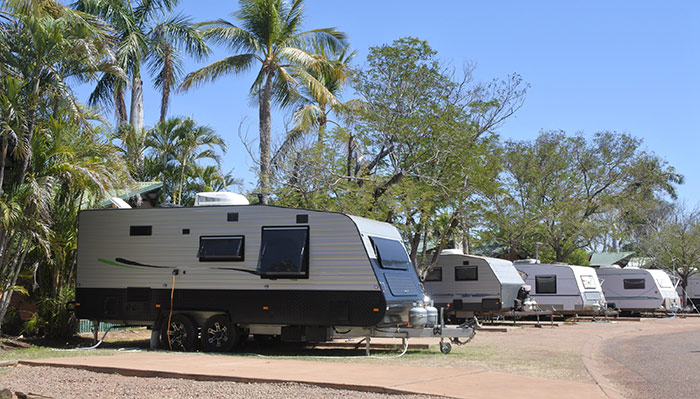
‘A lot of shonks in the industry’
Colin Young, an engineer by training and the founder and principal of the Caravan Council of Australia (CCA), has been advocating for a tighter grip on the caravan industry for more than a decade.
He’s seen “literally thousands of unsafe caravans” in his work conducting quality and compliance audits for manufacturers and importers and checking caravans for prospective buyers and owners.
“There are a lot of shonks in the industry,” says Young.
There has been a pathetic lack of regulatory audits of manufacturers and importers, as well as the lack of inspections of caravans being offered for sale
Colin Young, Caravan Council of Australia
While smaller manufacturers of caravans and trailers are meant to comply with the legal requirements of the government’s Vehicle Standards Bulletin VSB1 (for trailers 4.5 tonnes and under), industry sources as well as caravan owners report that many don’t.
“Self-certification of caravans is completely unsatisfactory,” says Young. “There has been a pathetic lack of regulatory audits of manufacturers and importers, as well as the lack of inspections of caravans being offered for sale.”
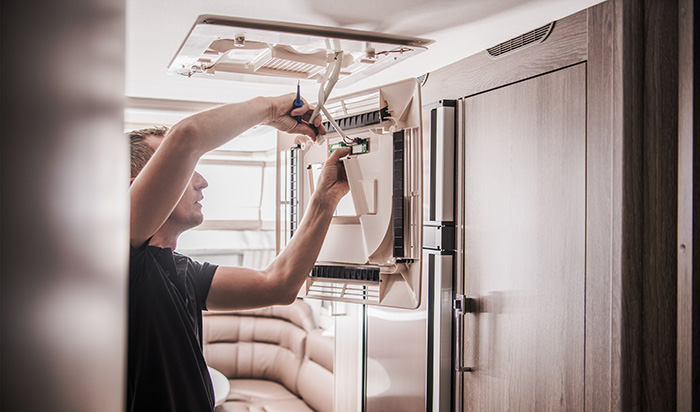
New road rules don’t go far enough
In 2018, the Motor Vehicle Standards Act (MVSA) was replaced by the Road Vehicle Standards Act (RVSA), and manufacturers and importers of caravans or trailers 4.5 tonnes or lighter – known as low ATM (aggregate trailer mass) vehicles – now have to abide by national road standards (as defined by Australian Design Rules) and also list the caravans on a new Register of Approved Vehicles. (The new RVSA came into effect in July 2021 with a transitional period until July 2022.)
But it’s still basically an honour system for these smaller manufacturers since, unlike larger manufacturers, they won’t have to include information on the register to demonstrate that they meet the VSB1 standards.
Instead, they are required to “make a declaration of compliance and retain information that supports their declaration”, a Department of Infrastructure spokesperson told CHOICE.
Young points out that this exemption lets smaller manufacturers, “who are highly disproportionately represented in the number of problems reported”, off the hook.
Under the new RVSA, manufacturers or importers who supply four trailers or less per year – which generally means low ATM vehicles – are also not required to take the additional step of getting a vehicle type approval that covers the make and category of the caravan.
The Department of Infrastructure spokesperson says manufacturers must have “a conformity of production system and retain information that shows compliance with applicable national road vehicle standards to secure a type approval”.
Over recent years, there have been a number of manufacturers going out of business, typically by going bankrupt, and then starting up again under a different name
Colin Young, Caravan Council of Australia
Young says this is rarely the case with small manufacturers.
“This dispensation will be a real drawback to the government’s intent to significantly reduce the number of accidents, deaths and injuries involving caravans on our roads,” says Young.
“No doubt there will be groups of manufacturers, each of whom make just four caravans a year, banding together for marketing purposes and offering a large number of near-identical caravans.”
Young also says low-volume manufacturers and importers are the source of most of the problems in the industry, and are often under-resourced and lack engineering and quality assurance expertise. In addition, Phoenix trading is not unusual in the caravan industry.
“Over recent years, there have been a number of manufacturers going out of business, typically by going bankrupt, and then starting up again under a different name,” says Young. “Often there are large debts owed by the previous business, and its customers are left stranded.”
CEO of the Caravan Industry Association of Australia (CIAA) Stuart Lamont takes a different view of the new requirements that the RVSA imposes on low-volume manufacturers, saying that having to declare their products are compliant and retain evidence to support the claim is a significant regulatory requirement.
“We would argue that smaller manufacturers and importers still have an extensive and appropriate compliance and administrative burden to meet to supply products to market,” Lamont says.
Non-disclosure agreements
Many caravan owners we’ve heard from say dealers and manufacturers push back hard against any requests to have problems fixed. Most owners can’t afford the cost of taking their case to a state tribunal, a fact that some caravan manufacturers seem willing to exploit.
The pressure of the gag is something that no one understands until they are subjected to it
Tracy Leigh
Another critic of shoddy practices in the caravan industry, Tracy Leigh says caravan sellers often compel owners to sign non-disclosure agreements (NDAs, or gag orders) as a condition for fixing a major fault, which is a likely violation of consumer law.
“The pressure of the gag is something that no one understands until they are subjected to it,” Leigh says.
“Imagine being gagged, losing a ton of money, the caravan can never be used, and you are entirely innocent but can’t stand the pressure anymore and the financial losses. But if you say one thing to one person and the company finds out and decides to punish you, you have to pay everything back. It is a very effective weapon and it is used with far too much frequency.”
Leigh says all the cases she’s seen of caravan owners ending up signing NDAs started when they tried to get a refund due to major faults.
Leigh also makes the point that design and quality problems in the industry are hardly restricted to smaller caravan manufacturers.
“All the thousands of complaints I have dealt with have been the larger manufacturers, and the caravans are often RVMAP [Recreational Vehicle Manufacturing Accreditation Program] accredited,” Leigh says.
According to CIAA, the RVMAP badge on a vehicle means some vehicles from that manufacturer have been inspected as part of the continual auditing process and have adhered to Australian Design Rules and Federal Compliance Regulations. But Leighs says the accreditation is not always reliable.
“This is one of the most serious issues in the industry, as the CIAA advertises 100% compliance, consumers believe it in droves, then experience serious faults with their caravans and the CIAA will do nothing.”
But Lamont rejects this, saying “we have never claimed this. Our results heavily support the view that a product supplied under a RVMAP licence is, on average, significantly more compliant than those products supplied outside of the program.”

